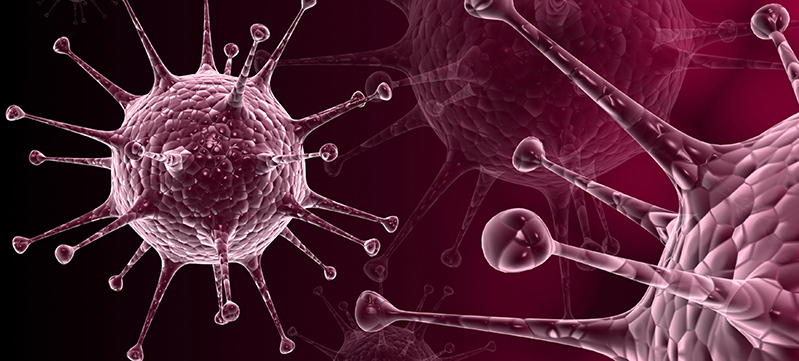
Amgen, a pharmaceutical company, has claimed on Tuesday that it has developed a drug based off the herpes virus that successfully treats an aggressive form of skin cancer. This discovery could signal the development of next-generation cancer treatments.
According to Hannah Devlin of the Guardian, the company's findings mark the first positive phase 3 trial results for cancer "virotherapy," a form of treatment where one disease is harnessed and used to attack another. Scientists predicted that the drug, known as T-VEC, could be available to more cancer patients by next year.
"This is the big promise of this treatment," Kevin Harrington, professor at the Institute Cancer Research London, said. "It's the first time a virotherapy has been shown to be successful in a phase 3 trial."
Harrington added that the results were encouraging because the patients who received the treatment had inoperable, relapsed or metastatic melanoma that had no options for conventional treatment. The trial's results have been published in the Journal of Clinical Oncology.
"They had disease that ranged from dozens to hundreds of deposits of melanoma on a limb all the way to patients where cancer had spread to the lungs and liver," Harrington said.
Devlin explained how the treatment worked, which implemented "a two-pronged attack on cancer."
"It is based on a genetically 'neutered' version of the herpes virus, which has been modified to stop it producing the protein that allows it to infect healthy cells," Devlin wrote. "Cancer cells then produce their own version of the blocked protein, filling in the deficit and allowing the modified virus to thrive within cancerous tissue."
Devlin added that the herpes triggered a secondary immune reaction against the tumor by multiplying inside the cancer cells until they burst open and spread the virus even further.
"In the trial, involving more than 400 patients with aggressive melanoma, one in four patients responded to the treatment, and 16 percent were still in remission after six months," Devlin wrote. "About 10 percent of the patients treated had 'complete remission,' with no detectable cancer remaining - considered a cure if the patient is still cancer-free five years after diagnosis."
According to Rachel Feltman of the Washington Post, the T-VEC used a modified version of the Herpes Simplex 1 virus, which is known for causing cold sores and some cases of genital herpes. She noted that using a virus as a drug was not a new concept.
"Phage therapy, where viruses that attack certain bacteria are used in place of antibiotics, is commonly used in Europe and on the rise in the United States," Feltman wrote. "But cancer therapies like the one described in the new paper take things a step further, manipulating existing viruses to turn them into cancer-fighting tools."
Harrington elaborated on the next steps for T-VEC and other similar treatments against cancer.
"The next steps are exciting, and already underway," he said. "The next big frontier will be to combine this with existing immunotherapies. There's a strong rationale that other drugs on the market could act synogistically with ours."
According to the Guardian, Amgen's drug has been submitted to both the FDA and the European Medicines Agency. Patients in both the United States and Europe could have access to the treatment by next year if approval is granted.






